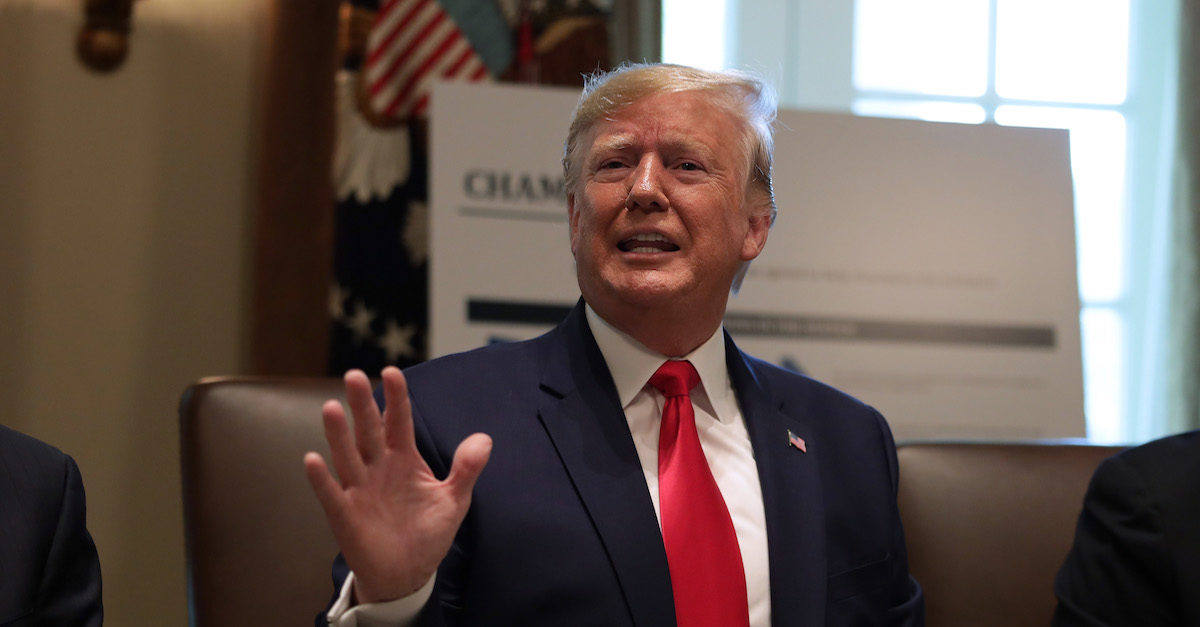
In a pair of tweets sent out Monday morning, President Donald Trump appeared to completely contradict himself regarding his July 25 phone call with Ukrainian president Volodymyr Zelensky, a call that sparked Democrats to launch an impeachment inquiry.
On the one hand, the president said that there’s no reason for witnesses to testify. On the other hand, Trump said the whistleblower needs to testify.
“What I said on the phone call with the Ukrainian President is ‘perfectly’ stated,” Trump wrote. “There is no reason to call witnesses to analyze my words and meaning. This is just another Democrat Hoax that I have had to live with from the day I got elected (and before!). Disgraceful!”
While Trump has repeated the claim that his call with Zelensky was “perfect,” several administration officials who have testified before House investigators have testified to contrary; William “Bill” Taylor and Lt. Col. Alexander Vindman both said they were extremely troubled by the president’s communications with Ukraine.
Just 44-minutes after saying there was no need for witnesses to testify about the meaning of his words, however, Trump espoused a different view on the need to hear witness testimony, stating that the anonymous whistleblower who filed the initial complaint against him “must” testify — and not in writing.
“The Whistleblower gave false information & dealt with corrupt politician Schiff,” Trump tweeted. “He must be brought forward to testify. Written answers not acceptable! Where is the 2nd Whistleblower? He disappeared after I released the transcript. Does he even exist? Where is the informant? Con!”
Despite Trump’s claim, the factual allegations in the whistleblower’s initial complaint have been almost entirely corroborated by first-hand witnesses such as Vindman, and by the White House, which released a memo of the Trump and Zelensky’s conversation.
Trump’s call for the whistleblower to testify in person as opposed to giving written responses, which they have agreed to do through their attorneys, is notable. During former special counsel Robert Mueller’s investigation into Russian election interference, the president himself refused to participate in an in-person interview and only provided investigators with written responses to questions.
[image via Alex Wong/Getty Images]